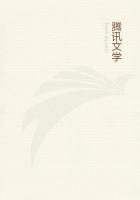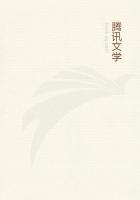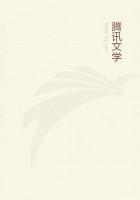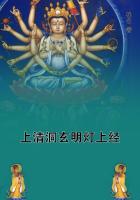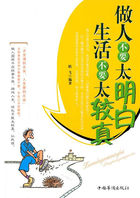Part II was published under the title Herrn Eugen Dühring's Umwälzung der politischen Oekonomie in Wissenschaftliche Beilage and in the supplement to Vorwärts from July to December 1877(No. 87, July 27; Nos. 93 and 96, August 10 and 17; Nos. 105 and 108, September 7 and 14; No. 127, October 28; Nos. 130 and 139, November 4 and 28; No.
152, December 30).
Part III of the book was written mainly between August 1877 and April 1878. It was published as Herrn Eugen Dühring's Umwakung des Sozialismus in the supplement to Vorwärts in May to July 1878 (Nos. 52 and 61, May 5 and 26; Nos. 64 and 75, June 2 and 28;No. 79, July 7).
The publication of Anti-Dühring in Vorwärts aroused strong resistance on the part of Dühring's followers. At the next congress of the Socialist Workers' Party of Germany, in Gotha from May 27 to 29, 1877, they attempted to ban the publication of this work in the Party's central organ. It was due to them that Anti-Dühring was being printed at lengthy intervals.
In July 1877, Part I of Engels' work was published in Leipzig as a separate pamphlet: Herrn Eugen Dühring's Umwälzung der Wissenschaft. 1. Philosophi,. In July 1878, Parts 11 and III were also published as a separate pamphlet: Herrn Eugen Dühring's Umwälzung der Wissenschaft. 11. Politische Oekonomie. Sozialismus.
The entire work was first published in book form in Leipzig on about July 8, 1878, with a preface by Engels: F. Engels, Herrn Eugen Dühring's Umwälzung der Wissenschaft. Philosophie. Politische Oekonomie. Sozialismus. Its title is an ironical paraphrase of the title of Dühring's work Carey's Umwälzung der Volkswirtschaftslehre und Socialwissenschaft. At the end of October 1878, after the Anti-Socialist Law had been put into force in Germany, Anti-Dühring was banned along with Engels' other works. Its second edition appeared in Zurich, in 1886. The third, revised and supplemented edition was published in Stuttgart, in 1894, i.e., after the Anti-Socialist Law was repealed (1890). This was the last edition during Engels' lifetime. The second and third editions bore the same title. but the subtitle Philosophie. Politische Oekonomie.
Sozialismus was omitted.
In 1880, at Paul Lafargue's request, Engels used three chapters of Anti-Dühring (Chapter I of the Introduction and chapters I and 11 of Part III) to provide a separate popular pamphlet, first published under the title Socialism Utopian and Scientific , and later as The Development of Socialism from Utopia to Science (see present edition, Vol. 24).
Anti-Dühring was published in English for the first time in 1907, in Chicago as F. Engels, Landmarks of Scientific Socialism.
Anti-Dühring. Translated and edited by Austin Lewis. This work has been repeatedly reprinted.
[2] At the congress held in Gotha from May 22 to 27, 1875, the two trends in the German working-class movement -- the Social-Democratic Workers' Party (Eisenachers), headed by August Bebel and Wilhelm Liebknecht, and the Lassallean General Association of German Workers -- united into the Socialist Workers' Party of Germany.
[3] The reference is in particular to August Bebel's article "Ein neuer 'Communist'", printed anonymously in the Volksstaat on March 13 and 20, 1874 with a favourable review of Dühring's book Cursus der National- und Sozialökonomie , einschlieslich der Hauptpunkte der Finanzbolitik and describing Dühring as a supporter of scientific socialism.
[4] The reference is to lectures given to the Berlin workers on the solution of social problems, in July 1876by Most, who popularised Dühring's views. These lectures came out as a separate pamphlet in 1876 in Berlin: J. Most, Die Lösung der socialen Frage. Dühring's views were also actively disseminated by the Social-Democratic newspaper Berliner Freie Presse.
[5] This refers to the protest lodged by Most with the editors of the Volksstaat , who did not print his article praising Dühring and Fritzsche's speech at the regular congress of the Socialist Workers' Party of Germany in August 1876, demanding that the Party's central organ Volksstaat disseminate Dühring's ideas.
[6] The Sixth World Industrial Fair opened in Philadelphia on May 10, 1876 in connection with the centenary of the founding of the USA (July 4, 1776). Reuleaux, director of the Berlin Industrial Academy appointed by the German Government as chairman of the German panel of judges, had to admit that German-made goods were far inferior to those of other countries and that German industry's guiding principle was "cheap and nasty". This statement evoked wide comment in the press. From July to September, the Volksstaat , for instance, published a series of articles on this scandalous fact.
[7] The phrase "really never learnt a word", which gained wide currency, is to be found in a letter by the French Admiral de Panat. It is sometimes ascribed to Talleyrand. It was made with reference to the royalists, who proved incapable of drawing any lessons from the French Revolution of the late 18th century.
[8] The Anti-Socialist Law was passed by the German Reichstag on October 21, 1878, to counter the socialist and working-class movement. Extended in 1881, 1884, 1886, 1888, it banned all party organisations, mass workers' organisations and the socialist and labour press; Social-Democrats were subjected to reprisals. The Social-Democratic Party, with the help of Marx and Engels, managed, however, to overcome the opportunist (Hochberg, Bernstein and others) and "ultra-Left" (Most and others) tendencies in its ranks and, while the law was in force, correctly combined legal and illegal work to strengthen and extend its influence considerably among the masses. The law was abrogated on October 1, 1890.

